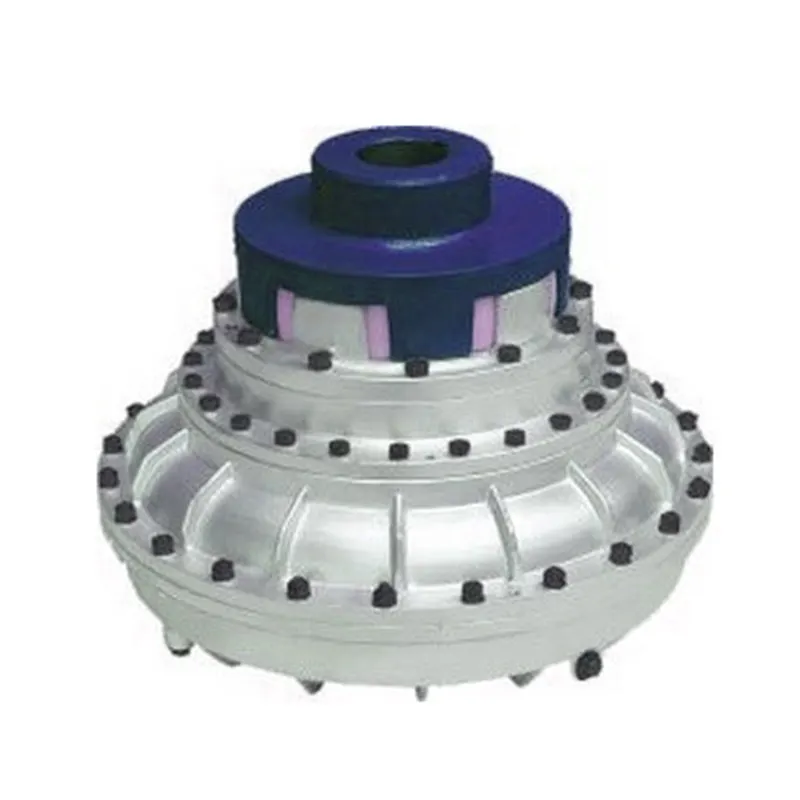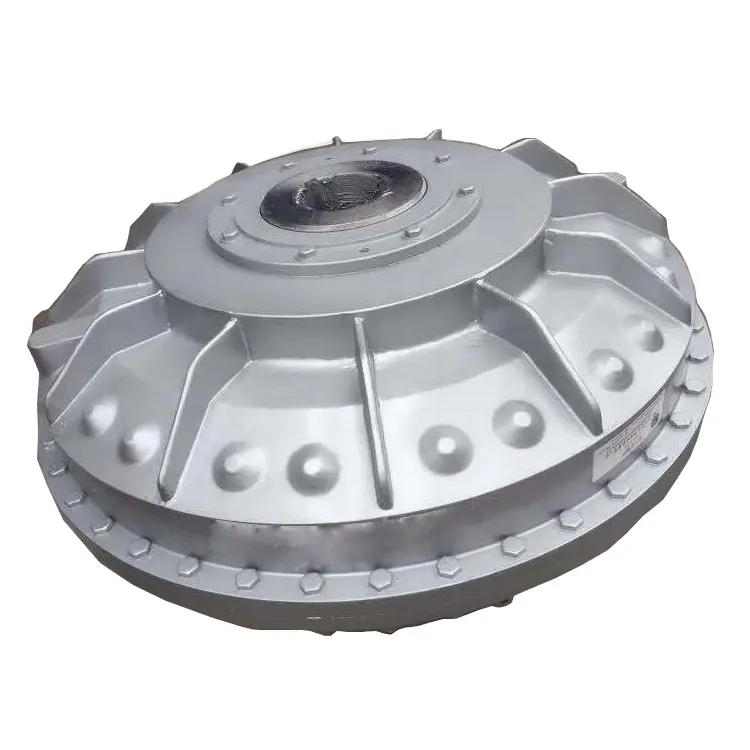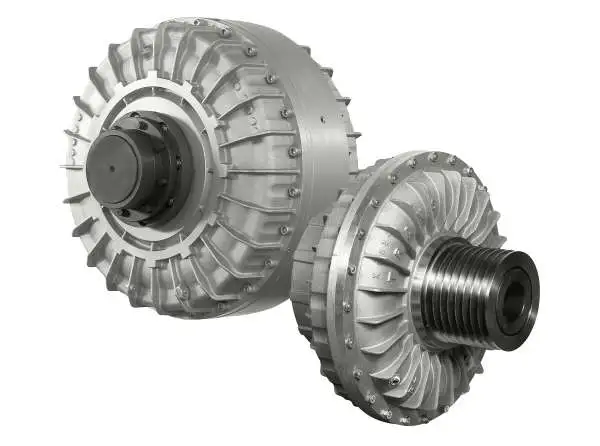Product Description
Detailed Photos
Product Description
1.Style 1N standard flexible coupling provides flexible connection by the gap between pipe groove and coupling key.
2.Unique design allows both axial and radial movement, suitable for pipeline with flexibility under intermediate pressure.
3.Enhanced body resists 4 times working pressure.
Product Parameters
1.Housing material:Ductile iron conforming to ASTM A-536, grade 65-45-12.
2.FM Approved & UL Listed:R.W.P. rated working pressure 300PSI(2.065MPa / 20.65bars)
3.Housing Finish:Fusion Bonded Epoxy Coated(Optional:Hot Deep Galvanized and Others)
4.Coupling gasket material:EPDM(Optional:Nitrile NBR,Silicone and Others)
5.Bolts and Nuts:Heat treated and electro galvanized bolts with oval neck, and heavy duty hexagon nuts. Track head meeting the physical and chemical requirements of ASTM A-449 and physical requirements of ASTM A-183.
6.Size Range:DN25 through DN300 (1″ through 12″)
Certifications
Company Profile
CONDOR brand Grooved products are developed and manufactured by ZheJiang Condor Machinery Imp.& Exp. Co., Ltd., which is established in 2009 and most professional manufacturing enterprise of piping products. CONDOR is the 1 of first grooved products manufacturer in China,equipped with most advanced casting, milling, painting and assembling facilities, including 3 DISA automatic molding line, semi-automatic casting machine, precision casting line, large size floor molding system and relevant comprehensive testing equipment.
CONDOR owns 2 casting factories, 1 rubber millingfacility and 2 assembling centers. Over 500 employees, annual casting productioncapacity 100,000tons. Our total floor space over 110,000m², annual turnover exceeds 120 million USDCompany services
CONODR Piping Systems Solutions span many markets. Our piping system are found CHINAMFG in multiple applications-from commercial comfort piping system; industrial process and utility piping; petrochemical and metallurgy industries; coal and mineral mining operations; water and wastewater plants and facilities. CONDOR Piping Systems Solution covers fire-hydrant and sprinkler system, water spray and water mist system, foam and gas system .For all systems CONDOR offers unique solution for each
individual practice and actual problem.
CONDOR brand Grooved products are designed, manufactured, managed strictly by UL listed and FM approved system under
ZheJiang Condor Machinery Imp.& Exp. Co., Ltd.
FAQ
1. Q: Are you a manufacturer or trading company?
A: We are valve manufacturer and factory, and not trading company.
2. Q: Do you have agent or representative abroad?
A: We do not have agent abroad, please contact us to purchase valves directly.
3. Q: What’s your product range?
A: We can produce Butterfly valve, Gate valve, Check valve, Control valve, Y strainer, By ISO/ANSI/DIN/JIS/ EN/GOST/AS standard.
4. Q: Is there any stock in your factory? And how about your lead time?
A: We stock valves with normal sizes. The lead time depends on your quantity, Generally about 30 days.
5. Q: Which countries do you export to?
A: We export directly to vast majority of countries in the world.
6. Q: What certificates will you provide?
A: We can provide UL FM.
7. Q: After-sales service
A: 18 months year warranty for all kinds of products.
As an experienced manufacturer, you can rest assured of the quality and sales service.
8. Q: Transportation
A: Transported by DHL, UPS, EMS, FedEx, SF, by Air, by Sea.
9. Q: Do you provide free sample?
A: Free sample is OK for us.
10. Q: Do you accept custom design on size?
A: Yes, if the size is reasonable.
/* January 22, 2571 19:08:37 */!function(){function s(e,r){var a,o={};try{e&&e.split(“,”).forEach(function(e,t){e&&(a=e.match(/(.*?):(.*)$/))&&1

Best Practices for Selecting Oil for an Oil Coupling System
Selecting the appropriate oil for an oil coupling system involves considering various factors to ensure optimal performance and longevity:
- Viscosity: Choose an oil with the right viscosity grade for the operating temperature range to maintain proper lubrication.
- Load and Torque: Consider the system’s load and torque requirements to select an oil that can handle the anticipated stresses.
- Speed: Determine the operating speed range and choose an oil that can provide adequate lubrication at those speeds.
- Environment: Assess the operating environment for factors like temperature, humidity, and potential contaminants.
- Compatibility: Ensure the chosen oil is compatible with the materials used in the coupling and its components.
- Oil Life: Evaluate the oil’s expected service life and its ability to resist oxidation and degradation over time.
- Oil Additives: Consider additives that enhance lubricity, anti-wear properties, and resistance to foaming and corrosion.
- Manufacturer Recommendations: Consult the coupling manufacturer’s guidelines and recommendations for oil selection.
- Oil Change Intervals: Determine the recommended oil change intervals based on factors like usage and operating conditions.
- Oil Analysis: Regularly monitor the oil’s condition through analysis to ensure it remains within acceptable parameters.
- Regulations: Consider any industry regulations or standards that might specify oil requirements for the intended application.
By following these best practices, you can choose the most suitable oil for your oil coupling system, optimizing its performance and longevity.

Types of Oils or Lubricants Used in Oil Couplings
Oil couplings typically use various types of oils or lubricants to facilitate power transmission and reduce friction between moving parts. The choice of oil depends on factors such as application, operating conditions, and temperature range. Some common types of oils used in oil couplings include:
- Mineral Oils: These are traditional petroleum-based oils with good lubricating properties and stability under moderate temperature and load conditions.
- Synthetic Oils: Synthetic oils are engineered lubricants with superior temperature stability, oxidation resistance, and reduced friction. They are often used in high-temperature or extreme conditions.
- Biodegradable Oils: In environmentally sensitive applications, biodegradable oils are chosen for their eco-friendly properties and biodegradability.
- High-Viscosity Oils: For heavy-duty applications or situations requiring high torque transmission, oils with higher viscosity are preferred to ensure proper lubrication and load-bearing capacity.
- Specialty Oils: Certain applications may require specialty oils, such as fire-resistant oils for safety or food-grade oils for industries like food and beverage.
The selection of the appropriate oil or lubricant is critical to ensure efficient power transmission, heat dissipation, and overall coupling performance. Manufacturers and users should consult the coupling’s specifications and operating conditions to determine the most suitable oil type.

Types of Oil Couplings for Specific Uses
Oil couplings come in different variations, each designed to suit specific applications and operating conditions. Some common types include:
- 1. Constant-Fill Fluid Couplings: These couplings maintain a constant level of fluid, providing consistent torque transmission and smooth operation. They are often used in applications requiring precise control and constant torque delivery.
- 2. Variable-Fill Fluid Couplings: These couplings allow for variable fluid levels, enabling adjustable torque transmission and speed control. They find applications in situations where speed modulation is essential, such as conveyors and certain industrial processes.
- 3. Start-Up Fluid Couplings: These specialized couplings provide high torque during startup, helping heavy machinery overcome initial inertia. Once the machinery is up to speed, the coupling allows for smooth and efficient power transmission.
- 4. Slip Torque Limiters: These couplings are designed to protect equipment from sudden overloads. They slip when the torque exceeds a preset limit, preventing damage to the machinery.
- 5. Centrifugal Couplings: These couplings use centrifugal force to engage and disengage the transmission of torque based on the rotational speed. They are commonly used in applications like lawn mowers and other small machinery.
- 6. Fan Fluid Couplings: These couplings are often used in cooling systems for fans and blowers. They allow for variable speed operation and protect the equipment from sudden load changes.
- 7. Torque Converters: While technically a type of fluid coupling, torque converters are commonly used in automotive applications. They provide variable torque multiplication and enable smooth shifting in automatic transmissions.
The choice of oil coupling type depends on factors such as the desired torque characteristics, speed control requirements, and the specific demands of the application.


editor by CX 2024-04-19
by
Tags:
Leave a Reply